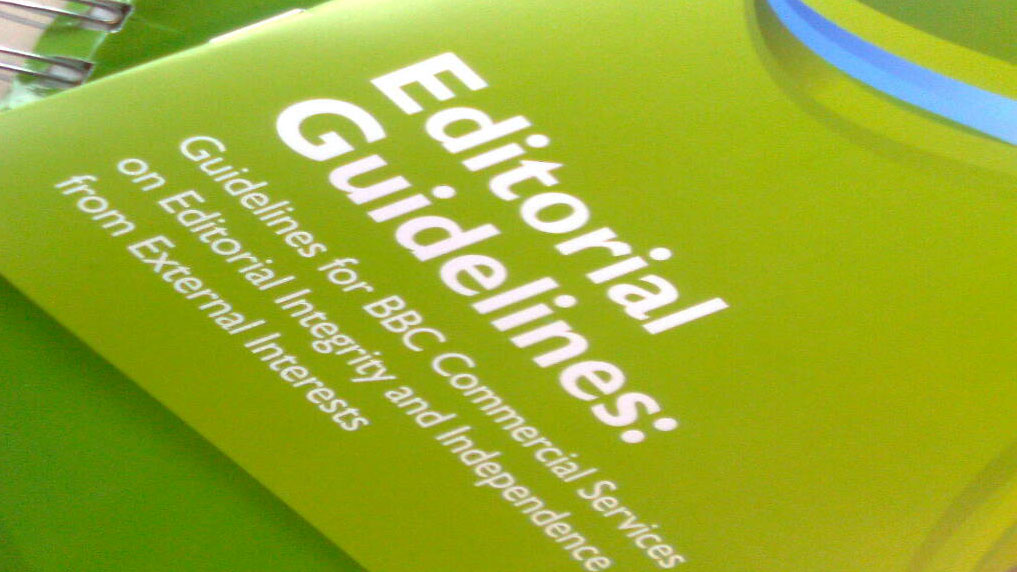On August 7th BBC World Affairs correspondent Paul Adams produced a filmed report for BBC television news which was also featured on the BBC News website under the title “Israel’s military strategy in Gaza under scrutiny“. The fact that the report has remained on the BBC News website for five consecutive days at the time of writing would suggest that the BBC is of the opinion that it contributes to audience understanding of events currently taking place in Israel and the Gaza Strip and indeed the report’s synopsis as it appears on the website looks promising.
“The BBC’s Paul Adams examines the criticism being levelled at the Israeli military, whose leaders insist they are “trying to minimise the civilian impact”.”
But does Adams’ report do what it says on the tin? Does it really give BBC audiences any insight into the complexities of combat against terrorist organisations which have embedded themselves in a civilian environment? Does it help them understand the context and facts which lie behind the emotive images and commentary which BBC journalists have produced in exceptionally large quantities in the month preceding this report? Does Adams actually ‘examine’ the validity of allegations against Israel by providing viewers with the relevant legal and operational information? Unfortunately; no.
Adams opens his report thus:
“For a month two very different stories have been told about events in Gaza. One brutally simple: Palestinian civilians killed and injured in a furious Israeli assault from land, sea and air. But Israel says this was not the plan, its military putting out videos showing attacks aborted when civilians are spotted nearby and pointing out that Palestinian militants have fired rockets from within populated areas, knowing Israel’s response may harm the innocent.”
At this point it would of course have been helpful to BBC audiences to receive some information on the topic of the legal aspects of the Gaza Strip terrorists’ policy of using residential areas for missile fire, launching attacks on Israeli troops, weapons storage and so forth. Like all BBC reporting to date, this report too fails to provide that crucial information. Adams continues:
“Israel would like us to focus on images like this: smart, high-tech weapons doing what they’re designed to do – hitting a rocket launcher, flying through the window of a militant. But the army has also fired thousands of artillery rounds into the Gaza Strip from Howitzers stationed just outside and these are much less smart. They’re incredibly destructive. Anyone standing within 100 meters of an explosion is almost bound to die.”
Accurate and impartial reporting of this topic would also have informed viewers that, for example, the M-109 (which, insofar as it is possible to tell, would appear to be what the images selected by Adams for his report show) uses a GPS system which – in accordance with IDF rules of engagement – prevents fire in the event of a discrepancy of over 50 meters between the target and the calculated trajectory. Such relevant information would, however, have spoiled the next part of Adams’ report in which he provides a platform for accusations of “indiscriminate” fire from Bill Van Esveld of the political NGO Human Rights Watch. If that name sounds familiar, it may be because Van Esveld has something of a history of speculative allegations concerning Israel.
“If you’re talking about a densely crowded urban environment you can go ahead and target your enemies there but the IDF has extremely precise missiles. It has other weapons available to it and there is just no excuse for launching that kind of inherently indiscriminate weapon into that kind of environment.”
The Oxford dictionary defines indiscriminate as “done at random or without careful judgement”. Artillery fire which is controlled by GPS and each calculated trajectory triple checked manually in addition (as Paul Adams would know had he bothered to investigate the subject of IDF rules of engagement at all) is not “indiscriminate” even when – as is inevitable with even the best of systems – errors occur. Were the IDF really firing artillery ‘indiscriminately’ – i.e. at random – at “a densely crowded urban environment”, of course the casualty rate would have been many times higher. Most viewers of this report will, however, not have the adequate military experience to know that and Paul Adams makes no attempt to provide that information. He continues:
“Several artillery rounds crashed into a UN school at the Jabaliya refugee camp last Wednesday. More than three thousand Palestinians were sheltering there. Twenty-one were killed. Israel said Palestinian militants were firing nearby.”
Notably, Adams yet again passes up the opportunity at this point to inform viewers of the legal significance of the fact that Hamas set up a firing position next to a UN school being used to shelter civilians. Next comes a short interview with IDF spokesman Peter Lerner.
“We are operating under extreme conditions in a reality where the other side has no regard for this situation. We are trying to minimize the civilian impact. We are warning civilians to vacate specific areas but indeed there can be collateral damage; not that we are trying to do that. We are trying to contain the situation but we are, you know, we are striking these terrorists.”
Adams goes on to promote the following unverified linkage:
“Israeli troops entered the Gaza Strip ten days into Operation Protective Edge. By now around 300 Palestinians had already been killed but in the days that followed the death toll rose dramatically – as did the use of artillery.
The report then returns to the HRW representative:
“We’ve seen reports of large amounts of heavy artillery that came down including during times when IDF ground forces got pinned down unexpectedly. The issue is, you know, what are your targeting policies and when are you going to bring down very heavy attacks on populated areas in a disproportionate or indiscriminate way?”
Adams concludes:
“Israel says it’ll investigate allegations of improper behavior by its forces but it disputes utterly the suggestion it may have committed war crimes.”
He refrains from informing viewers that the Military Attorney General (MAG) investigates all allegations as a matter of course.
“Disproportionate”; “indiscriminate”; “war crimes”: Paul Adams has managed to insert into this report some of the key buzz words used by politically motivated NGOs in their allegations against Israel. However, he makes no real attempt to provide viewers with the necessary information regarding the practices of the terrorist organisations operating in the Gaza Strip which is crucial context for any examination of the validity of any of those accusations.
Neither does Adams bother to tell audiences that his star interviewee from Human Rights Watch – around which the entire report is based – is actually a representative of an organization currently involved in a lawfare campaign against Israel. [emphasis added]
“Following Israel’s response to hundreds of attacks launched from Gaza, the network of international, Palestinian, and Israeli-Arab NGOs have initiated a campaign to replicate the discredited “Goldstone process” of political warfare against Israel, including:
calling for UN and international “fact-finding missions” to investigate alleged Israeli “war crimes and crimes against humanity”;
lobbying for International Criminal Court (ICC) “war crimes” cases against Israeli officials;
promoting arms embargos against Israel.
The NGOs leading this campaign include Human Rights Watch (HRW), Amnesty International, FIDH, a coalition of Palestinian NGOs (including Al-Haq, Al Mezan, Badil, Defence for Children International- Palestine Section, Palestinian Center for Human Rights), and of Israeli-Arab NGOs (such as the NIF-funded Adalah and Mossawa).”
This is not the first time since Operation Protective Edge commenced that we have seen the BBC providing publicity for political NGOs pursuing a lawfare campaign against Israel. Earlier examples were documented here and the unquestioned amplification of allegations made by Amnesty International in at least three recent articles on its website (see here and here) also belongs in the same category.
Paul Adams did not make any effort to “summarise the standpoint” and aims of Bill Van Esveld and his organization for viewers – in clear breach of BBC editorial guidelines. He also made no real attempt to ‘examine’ the validity of Van Esveld’s allegations but instead only repeated and amplified them.
The fact that the BBC has repeatedly over the past few weeks provided publicity, promotion and amplification for the agendas of the cluster of political NGOs operating under the halo of ‘human rights’ but actually engaged in anti-Israel campaigning through ‘lawfare’, is one which is completely incompatible with the BBC’s commitment – and obligation – to impartial reporting and turns it into an active contributor to that campaign.
Related Articles:
Documenting the BBC contribution to political warfare against Israel




